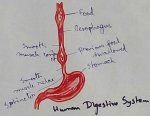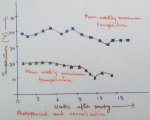Personal Pronouns and Its Forms
Pronouns are one of the most commonly used Parts of Speech in both formal writings and informal conversations.
Today, we shall be discussing in detail the Personal Pronouns and their Forms.
Personal Pronoun is the first kind of Pronouns that springs to our mind whenever we think of Pronouns.
It can be defined as the type of Pronoun used to replace a specific Noun in a sentence. They help to replace a person, an animal or a place in order to avoid making the same repetitions again and again.
· Usage: In a sentence, Personal Pronouns can be used to replace a Noun used earlier.
They function in two ways:
1. As the subject.
2. As the Object.
· They can be, thus, further categorized as:
1. Subjective Personal Pronouns – Used as the Subject.
2. Objective Personal Pronouns- Used as the Object. (couls be Direct , Indirect or Object of Preposition)
· Conditions:
· In order to be grammatically correct, Personal Pronouns must agree with the:
Number
a.Singular : I, You, He, She, It , Him, Her
b. Plural: You,We, They, Them, Us
Gender
a. Masculine : He, Him
b. Feminine: She, Her
c. Neuter It
Person
|
Subject |
Object | |
|
First Personal Singular |
I |
Me |
|
First Person Plural |
We |
Us |
|
Second Person Singular |
You |
You |
|
Second Person Plural |
You |
You |
|
Third Person Singular |
It,
He, She |
It, Him, Her |
|
Third Person Plural |
They |
Them |
Please note that a Third Person Plural Personal Pronoun such as ‘they’ which refers to both Masculine and Feminine Gender is called a Generic Pronoun.
· A Personal Pronoun can function as either of the ways by replacing the Noun or the Noun Phrase.
1. Subject in a sentence.
2. Object in a sentence. (Either Direct or Indirect or Object of Preposition)
They, thus help to avoid frequent repetitions and ensure s smoother flow of words or sentences in speech or writing.
· Personal Pronouns are usually definite and therefore, normally used only when the person or the thing they replace is already mentioned in the sentence which is known as antecedent.
1. The antecedent, most commonly has a backward reference which is hence known as Anaphoric.
e.g.: The teacher called me to the staffroom. She was livid at me.
2. But at times, in formal writings mostly it can have a forward reference too , which shall be clear in the example mentioned below . This is known as Cataphoric.
e.g.: She walked in to the sunset. For years afterwards, Mary would recall this hour of solitude spent in the dusk, as the best time of her childhood days.
Examples of Personal Pronouns
1. Can you take her to school, today?
2. My husband and I got it from the curio shop.
3. I bought some shoes, but they didn’t fit.
Some more examples from Literature
1. So, I love you because the entire universe conspired to help me find you.(Paulo Coelho, The Alchemist)
2. Always forgive your enemies. Nothing annoys them so much. (Oscar Wilde)
English Grammar and Composition
From Personal Pronouns and Its Forms to HOME PAGE
Recent Articles
-
Eleventh Grade | Eleventh Grade Science | Eleventh Grade Math
Jun 27, 25 12:26 AM
Eleventh grade biology has been designed in accordance with the recommended topics. We will cover all the topics in biology very exciting and interesting way. -
Explain Digestion of Food | Salivary Glands | Oesophagus | Stomach
Jun 27, 25 12:20 AM
Before the digestion is start by the different enzymes secreted from the different digestive glands food must be turned and chut or mixed with saliva inside the mouth. -
Explain Human Digestive System | Mouth | Tongue | Pharynx | Teeth
Jun 21, 25 01:15 PM
Digestive system is a system of alimentary canal and digestive glands. Alimentary canal- alimentary canal is a tube of variable diameter having muscular wall and glandular epithelial tissues which sta… -
Vernalisation in Plants | Definition | Mechanism | Devernalization |
Jun 18, 25 01:34 PM
Definition of vernalisation- The change of flowering habit due to the low temperature treatment is known as vernalisation. This is a physiological process which was denoted by Clipart in 1857 invite b… -
The Food We Eat | Food we Get from Plants and Animals | Carbohydrates
Jun 15, 25 03:20 PM
What are the food that we should eat? Find out the names of ten food items in the word maze. Write the names in the correct column of the table given below. Food we get from plants Food we get from an…




New! Comments
Have your say about what you just read! Leave me a comment in the box below.